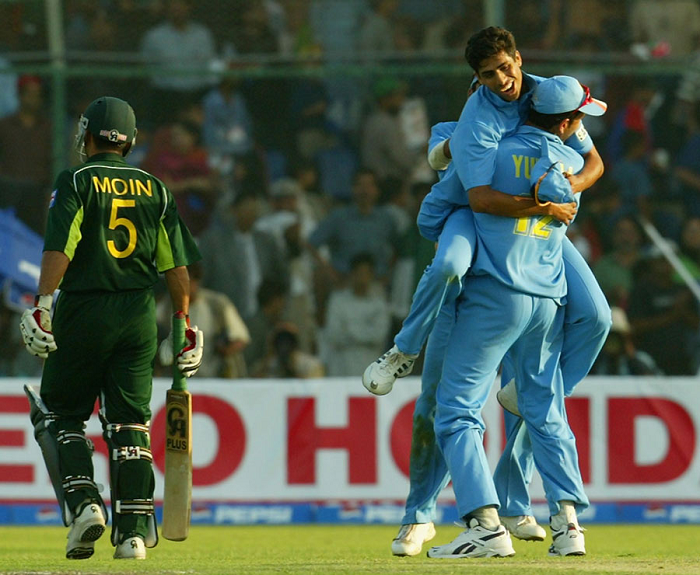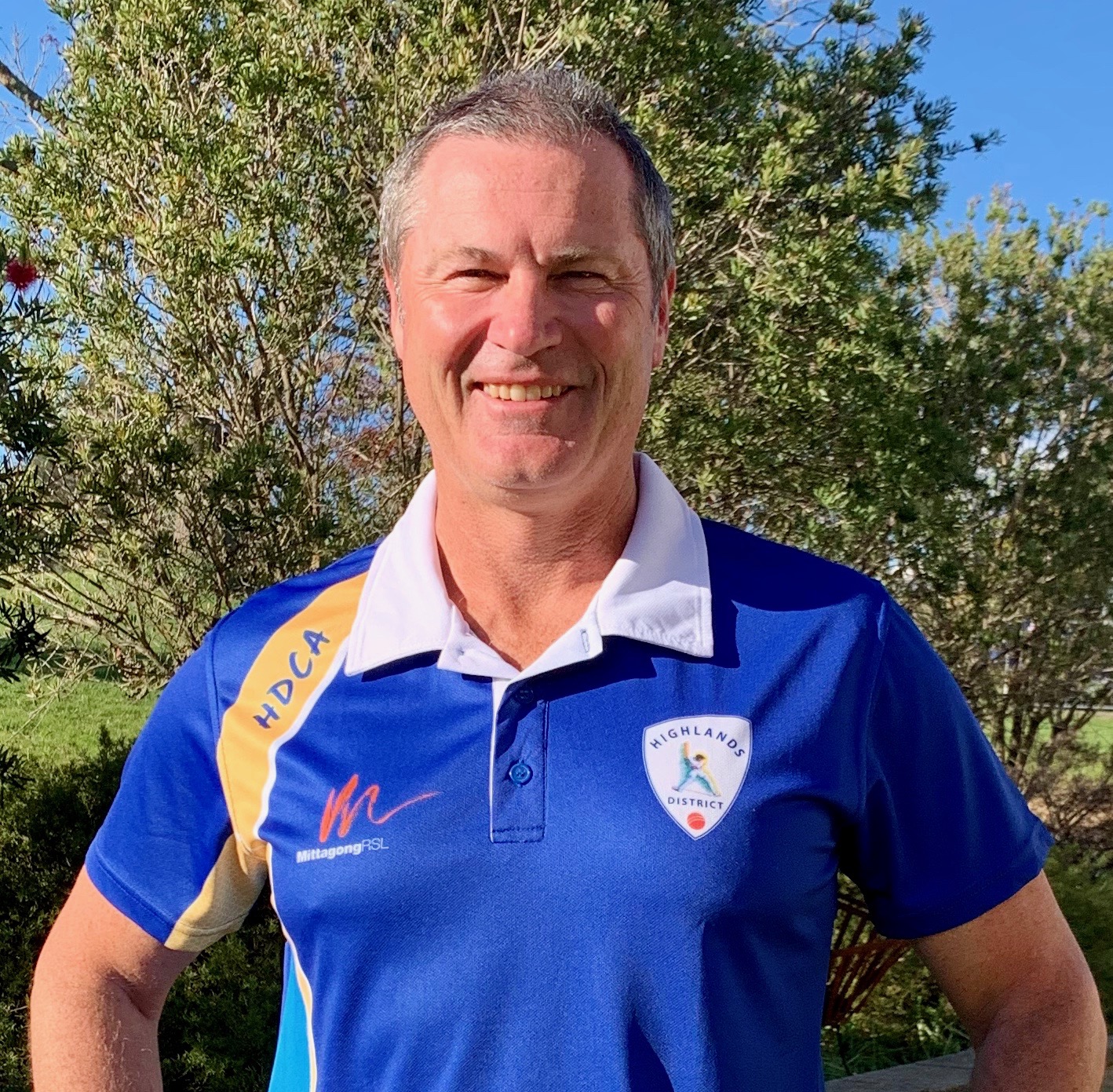My Ashes – India v Pakistan
Simon Taufel | April 19, 2023

“Aren’t you disappointed you never umpired an Ashes Test?” It’s a question I’m asked often. My answer is “no” and “yes”. “Yes” because for most of my international career Australia were one of the best sides in the world and I wanted to test my skills against the best. “No” because there is another iconic series in world cricket that’s right up there for intensity and pressure, India v Pakistan.
It’s a series that has a similar passion of rivalry and a focus on the outcome by the fans that goes beyond the scoreboard..
I’ve lost count of how many India Pakistan matches I have umpired. It wasn’t long after joining the ICC Elite Panel that I was appointed to my first India Pakistan series in Pakistan. It was early 2004 and I was with my good mate and umpiring legend, the late David Shepherd. Due to political disagreements these two nations sometimes are prevented from participating in regular series. This was the case prior to 2004 where they had not played each other for several years.
My first match in that series was in Karachi and I’m about to share with you my diary notes from that 13th day of March 2004 to help paint a picture of what it was like…
“Today started with us leaving the hotel at 8am – we all left via the back door where the anti terrorist troops were amassed in the car park with machine guns ready. I’ve never seen anything like this – so many troops, armored cars, police cars and guns.
All the streets were blocked off on the way from the hotel to the ground by the police. We raced along the road to the venue – these security agents have thought of everything – they had closed all the petrol stations along the route to prevent stationary cars from being possible bomb plants. Entering the ground I could hear this hum…it was the 35000 people starting to roar as the players took the field for practice.
Whatever today was…it was NOT cricket. It is very hard to explain, but I now have some understanding as to what the Christians must have felt when they were fed to the lions in the Coliseum! The noise was immense…sure the MCG is loud but not every ball all day long. The two way radios we use to communicate with the 3rd umpire were useless as we could not hear what each other was saying nor know when the 3rd umpire wanted to talk to us – just hopeless. It is a real challenge to umpire without the use of the sense of hearing. You have no chance on caught behind appeals and have to rely on other senses and cricket instincts to be able to make decisions…this is something you just cannot teach anyone…you have to learn it for yourself.”
“The cauldron was a buzz and I’ve still got a splitting headache hours after the match – as I said, this was NOT a game of cricket, it was more than that – national pride, politics, peace, reconciliation, anti terrorism and sport all rolled into one event.”

Is this what an Ashes Test is like? Having been a TV umpire for an Ashes Test in the late 1990’s at the SCG, I don’t remember it to be anything like this.
As I umpired these India Pakistan fixtures, I continued to learn more about my own officiating strengths and development areas. Some things you just have to learn on the job despite the best efforts of trainers and coaches around you. I’d been through Champion’s Trophy matches, other Test series in India, the 50th Jubilee One Day International at Eden Gardens in front of close to 100 000 people and the ICC T20 World Cup Final in 2007 where India played Pakistan in Johannesburg.
They were all extremely challenging in their own right, however, most of the challenges are found off the field. My experience with the players and support staff was excellent. For the most part, the players appeared relaxed and were not subject to the expectations of their respective nations – well, at least they came across that way. I’m sure, like me, they were feeling some anxiety internally. However, I cannot recall too many situations where this outward pressure caused the players to behave poorly or create problems.
Perhaps the most recent iconic clash between these two teams occurred in the ICC 2011 Cricket World Cup. They met in the semi final – played in Mohali, India. A relatively small town by Indian standards and not too far away from the border with Pakistan. While an estimated billion people were to watch the later Final between India and Sri Lanka, I feel this number was exceeded with this semi final clash. Anyone who was anyone was in town for the match – Prime Ministers Dr. Manmohan Singh and Yousuf Raza Gilani, Bollywood stars and captains of industry. There was not one parking space free at the airport given the amount of private jets and planes that had landed.
There was so much “noise” surrounding the lead up to this match, as I’m sure there will be for this CWC fixture. How do match officials prepare for such a contest and have any hope of delivering their best? When it comes to preparation, we are all different and have personal preferences. I’d like to share with you how I prepared to handle all the off field distractions and chatter surrounding this India Pakistan World Cup semi final.
We arrived at the hotel two days ahead of the match, and at the check-in, I asked for the "do not disturb" (DND) to be set on my room phone. I asked for no newspapers to be delivered and put the TV control in the top drawer of the desk. I did not want to watch any TV. Anyone who has been to India may know that there is a couple of hundred TV channels with most of them dedicated to news and sports. I did not want to know anything about this upcoming match from an outside source. Apart from the ground inspection, and a nightly meal, I kept pretty much to myself and away from all the outside noise. I kept telling myself, this is just another game of cricket and everything inside the boundary is just the same.
It turned out to be one of my better matches, and while I had some very tight calls to make, I trusted in my instincts and abilities and got them right. I can't remember what the scores were or who made runs or took wickets. I was so focused on respecting each ball and keeping it simple, I blocked out a lot of everything else. When we ran out of overs and time, and the match was over. I remember sitting on the steps of the dressing room with my partner Ian Gould, we just sat there with a drink in our hand. It must have been around forty minutes after the winning run, and they began to turn some of the stadium lights off, all the crowd was gone, and the TV crew was starting to pack up. It finally hit me - this was a big, big match, we survived it, and we did well. I was exhausted from the mental and physical strain and didn't want to go anywhere - I just wanted to soak up the sense of achievement and relief.
Here's a link to the scorecard for the ODI 13 March 2004 India v Pakistan








